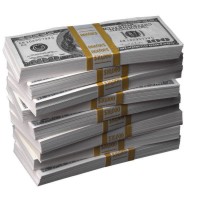 Basically books were sold to stores at 50% of the face price so if the cover says $10 then the book store bought it for $5.
Basically books were sold to stores at 50% of the face price so if the cover says $10 then the book store bought it for $5.
However E-Books are a little different then paper versions. They basically cost nothing to distribute and the publishing process is just a click to save it in PDF form vs printing it out on a press.
So, when people started buying EBooks they were pissed off that the book that they had in digital form wasn’t discounted to reflect the reduction in costs to the publisher and the distributor’s cost for storing and delivering the book.
The case first came to light when people thought that college books for classes that often cost $100 would get discounted to below the cost or at about the same cost as a used book the students bought in their college book store.
This never happened but it should have. There is no reason that educational books should be so expensive unless they have a very special niche. Additionally books that teach generic subjects like math or english.. or even foreign language and science have been in circulation for many years and our Federal Government has thousands of books that have been manufactured with our tax dollars that are public domain that teach things like Chinese Language to our State Department workers or Engineering to our Department of Defense … or horticulture to our department of the interior.. full books that are college level courses that could be used for free in any k-12 or college class.
The fact is Apple has long past decided what we can access and how they will profit.
It is not about distribution of information in a way that can help humanity.
Its about controlling humanities distribution of information.
This lawsuit is over the firms’ move to the agency model where publishers rather than sellers set prices.But Hachette, HarperCollins and Simon and Schuster have already settled.The case will proceed against Apple, Macmillan and Penguin “for conspiring to end e-book retailers’ freedom to compete on price”, the Justice Department said.”As a result of this alleged conspiracy, we believe that consumers paid millions of dollars more for some of the most popular titles,”



